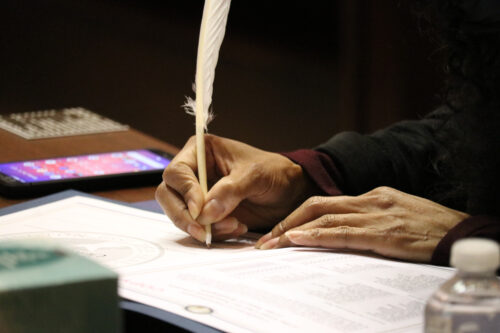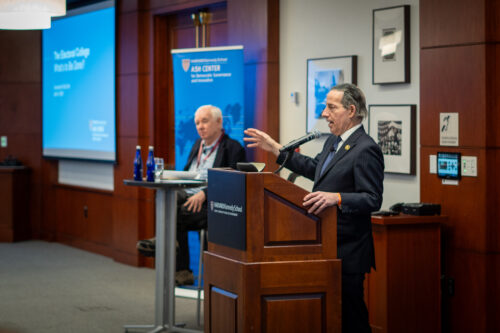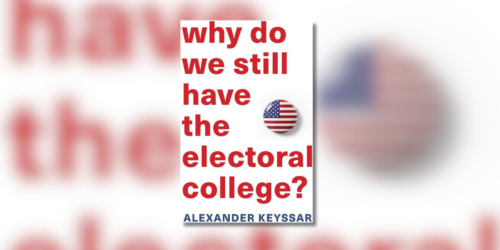
Feature
Additional Resource
The Electoral College is viewed as a democratic anachronism in modern-day America, yet it has persisted for over two centuries despite repeated attempts to reform or abolish the institution. To build off of an Ash Center symposium hosted in April 2024, our scholars and researchers continue to seek answers to some of the biggest questions surrounding why the Electoral College has remained impervious to change for so long and what are the prospects for reform. Below, we invite you to explore several resources geared toward resolving these enduring debates.
Feature
Feature
It’s an accident waiting to happen every four years. I mean, Jefferson himself called it an ink blot on the Constitution. And so, it’s always been recognized that it’s dangerous and dangerously unstable.![]()
Congressman Jamie Raskin
Speaking at the Ash Center Electoral College symposium
Book
Podcast
Podcast
Co-hosts Archon Fung and Stephen Richer weigh conflicting predictions for the 2026 midterms and explore how to safeguard a free and fair election.
Podcast
White House reporter Annie Linskey offers a closer look at how the Trump White House makes decisions and what recent actions reveal about its strategy.
Podcast
Jonathan Rauch joins the podcast to discuss why he now believes “fascism” accurately describes Trump’s governing style.
Commentary
Allen Lab Policy Fellow Christine Slaughter makes the case that democracy must be understood through people’s lived experiences and agency, not just institutions.
Podcast
Co-hosts Archon Fung and Stephen Richer weigh conflicting predictions for the 2026 midterms and explore how to safeguard a free and fair election.
Feature
Economists and policy analysts broadly agree that more housing needs to be built in order to reduce costs in America’s most expensive cities. Using a novel survey of mayors of mid-sized and large cities to explore mayors’ views on the roots of America’s housing crisis and what solutions they believe will most effectively address their constituents’ housing challenges, the authors summarize mayors’ attitudes and perceptions on key issues related to expanding the housing supply, reporting how well these views correlate with mayors’ assessments of their own cities’ supply needs.







